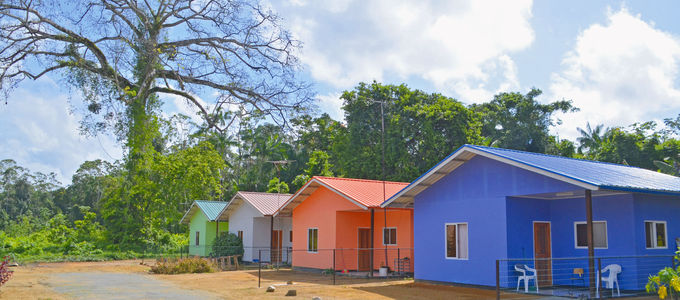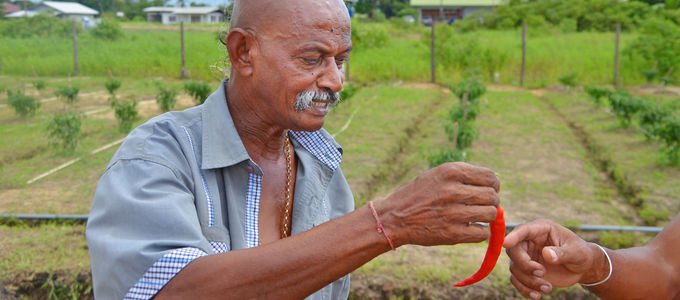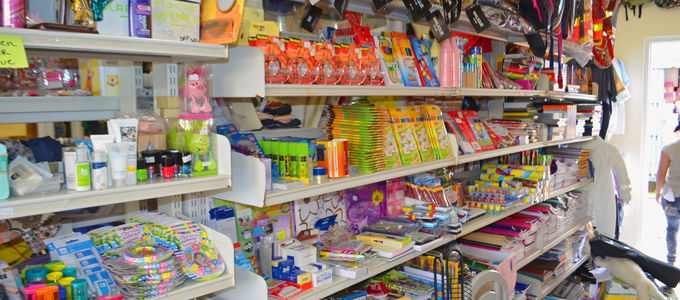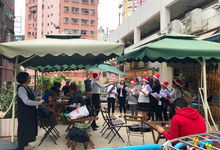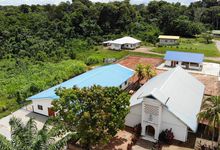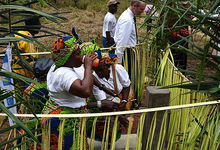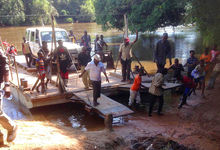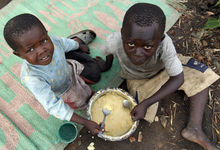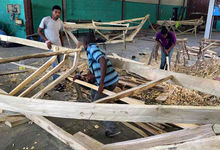Working hand in hand for the well-being of others
Since its founding in the year 1997, Stichting Corantijn, the relief agency of the New Apostolic Church in the Netherlands, has been providing charitable aid to Suriname. For a few years now, it has been receiving some support from the Church aid organisation, NAK-karitativ.
Many people only know about the country of Suriname by hearsay: some 8,000 kilometres of air travel lie between the Netherlands and the country in South America, which requires a flight time of nine hours to reach. In the north, Suriname is bordered by the Atlantic Ocean, in the east, by French Guyana, in the south, by Brazil, and in the west by Guyana.
With an average temperature of between 26 and 34 degrees Celsius, the climate is tropical throughout the year. From the start of December to the start of February there is a small rainy season, and from the end of April to the middle of August, there is a major rainy season. In addition to a large variety of agricultural products, Suriname is known for its mineral wealth, of which it primarily exports bauxite, gold, and petroleum to the outside world. Large quantities of petroleum in particular have been produced off the coast of Suriname since 2007.
On the threshold of becoming an industrial nation
Despite its commodities and a regular trade surplus, the country is not particularly attractive to investors. On the one hand, this has to do with the country’s slow economic growth and its poorly developed infrastructure, but on the other hand, it has also resulted from the mass exodus of educated people who could not see much in the way of economic prospects for themselves after the country declared its independence. Surname was still under the administration of the Netherlands until November 1975. Despite this, Suriname should not be considered a developing country, but rather an emerging country.
Despite its national independence, the influence of the Netherlands is still clearly apparent today in various ways: for example, some 60 percent of the population of Suriname speaks Dutch as its mother tongue, although many also speak a creole known as “Sranan Tongo”. The diversity of Suriname is also reflected in the distribution of the country’s religions: some 48 percent of the population is Christian, while 22 percent is Hindu, and 14 percent is Muslim.
Support from the Netherlands
The New Apostolic congregations of the country, which are part of the District Apostle district of Rainer Storck, only number a few hundred members. The contact person for Church visitors and the aid agencies of the New Apostolic Church is also the leader of the Suriname district, District Elder Harvey Sanredjo.
Stichting Corantijn, the charitable organisation of the New Apostolic Church of the Netherlands, is only active in Suriname, and provides support in the areas of education and training there. Two to three times each year, a container filled with second-hand clothing, school supplies, medical supplies, and aid supplies for the disabled is shipped to the country. In addition, building support is provided to a limited degree, for example by a retired Dutch Priest who helped set up the ambulance vehicle control centre in Paramaribo.
House construction and chili peppers
Larger projects are executed in collaboration with NAK-karitativ: in the year 2017, seven houses were built on the Church’s own six-hectare property in Welbedacht, which is located some 40 kilometres from the capital city. The housing situation of the people there was extremely inadequate. In the meantime, these three-room houses have been rented out, which helps the foundation generate rental income—with which it in turn finances additional relief measures on a smaller scale.
At the same time the construction of the houses was completed, a shop selling second-hand clothing, school supplies, and shoes was also completed with donations from Stichting Corantijn, and it was inaugurated in March 2018. Buyers even drive there all the way from Paramaribo, as word of the good quality of the products on offer has made its way around.
Another local development project was the cultivation of chili peppers. In order to acquire sufficient agricultural land for it, one and a half hectares of terrain were cleared. The dried pods and spicy powder derived from the peppers is in high demand at the local market and even in the restaurants of the Netherlands.
Kindergarten in a government building
In Balingsoela, which is located some 130 kilometres southeast of Paramaribo in a much neglected part of the country, a rather unusual project was executed by the Church relief agencies, namely the construction of a “Lijkenhuis”. The house, with its cool rooms, ceremonial hall, running water, and sanitary facilities allows for longer periods of time before burial, and now provides relatives the chance to take a dignified farewell from their deceased loved ones—something that was not always possible in the past, due to the climatic conditions and the great distances between villages and towns.
Beyond that, Stichting Corantijn renovated a dilapidated government building located in the immediate vicinity of the church, and was able to develop a remarkable plan of use with the village elders: the building, which covers an area of 2000 square metres was equipped with a kindergarten, two meeting rooms for young people with a library and computer room, two apartments for village teachers, and a drying room for chili peppers, all by the end of 2018.
Article info
Author:
Date:
Keywords:
Martin Petzoldt,
Ole Krafft
26.09.2019
Netherlands,
Suriname,
Aid agencies,
Social commitment



